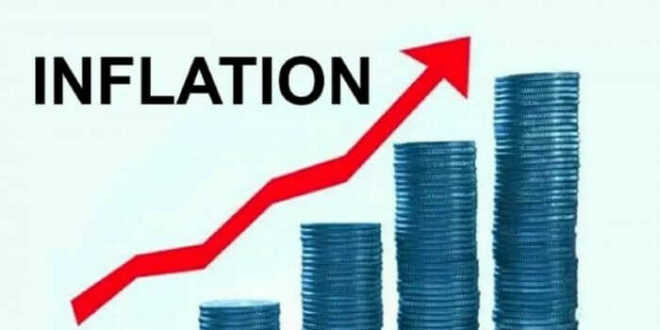Recent projections from Cordros Capital Research suggest that the country’s inflation rate is set to skyrocket to 32.77% this month.
The primary drivers behind this alarming surge are escalating food prices and harvest depletion, which are putting significant pressure on the nation’s food sector.
Inflation has been on the rise in Nigeria, with the headline rate climbing by 1.80 percentage points to 31.7% year-on-year in February, up from 29.9% in January.
This alarming increase can be attributed to a combination of factors, including reduced food supply, ongoing currency devaluation, and soaring energy costs, further exacerbated by unfavorable base effects from the previous year.
Food inflation, in particular, remains a significant concern, having reached a 19-year high of 37.92% in February. Meanwhile, core inflation has hit a staggering 25.13% year-on-year, the highest level since March 2004.
On a month-on-month basis, consumer prices surged by 48bps to 3.12% in March, the highest point in six months.
To combat the escalating inflation rate, the Central Bank of Nigeria (CBN) has been working to stabilize the naira, recognizing the high pass-through effect on domestic prices.
These efforts include improved dollar supply to the forex market, monetary tightening, and higher domestic interest rates.
While the experts at Cordros Capital Research predict a less volatile naira this month compared to previous months, the impact of currency volatility on price increases in March is still expected to be significant.
As a result, core inflation is forecasted to print lower by 10bps to 1.98% MoM in March.
However, harvest depletion is anticipated to sustain price pressures within the food basket, leading to a MoM increase of 3.29% for food inflation.
As a result, the analysts forecast a headline inflation increase of 2.69% MoM, resulting in a YoY increase of 107bps to 32.77%.
In a recent development, the National Bureau of Statistics (NBS) reported a 49.9% YoY increase in collections from the Company’s Income Tax (CIT) in Q4, 2023, bringing the total CIT collection to N4.90 trillion in 2023 full year.
However, the CIT collection declined by 35.4% on a quarter-on-quarter basis in Q4, 2023, due to the impact of the weak macro economy on corporate earnings.
Looking ahead, the experts expect CIT collections to increase in the near term in line with the tax provisions of the 2023 Finance Act and Fiscal Policy measures.
However, key risks such as FX illiquidity, weak consumer demand, and high energy costs could potentially weaken corporate earnings and CIT collections over the short to medium term.
As Nigeria grapples with this unprecedented inflation surge, the government and relevant stakeholders are under pressure to implement effective measures to curb the rising costs and alleviate the financial burden on its citizens.
The focus should be on ensuring a steady supply of food and other essential commodities, stabilizing the currency, and managing energy pricing to mitigate the inflationary pressures facing the nation.
Subscribe to the Advocate News letter and receive news updates daily in your inbox.
 Advocate.ng Latest news update on politics, entertainment, sport and more
Advocate.ng Latest news update on politics, entertainment, sport and more




